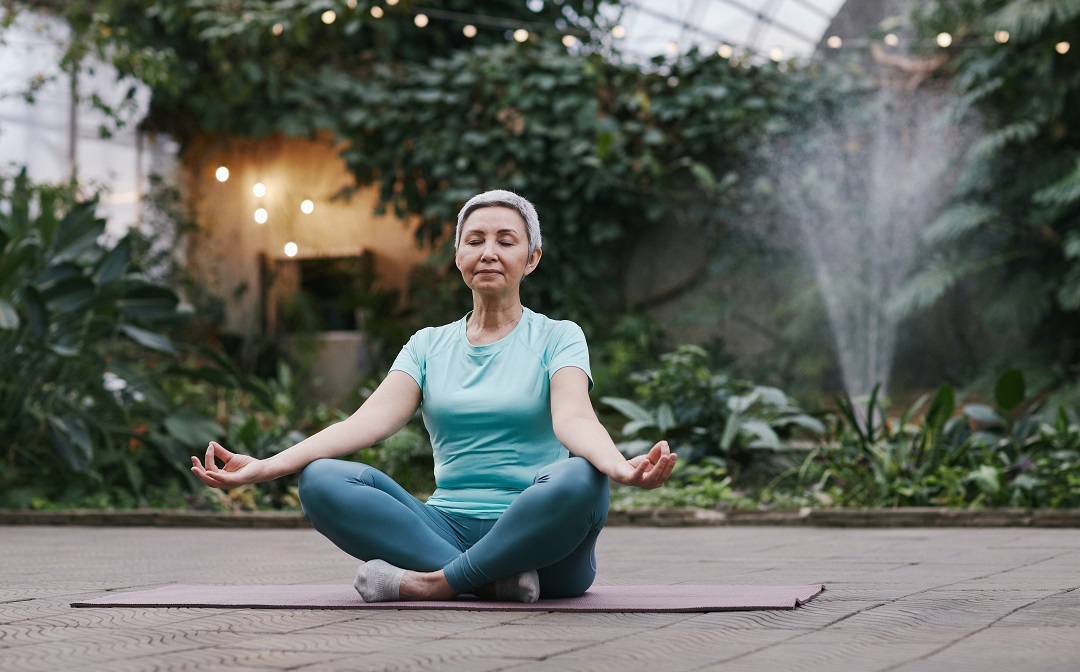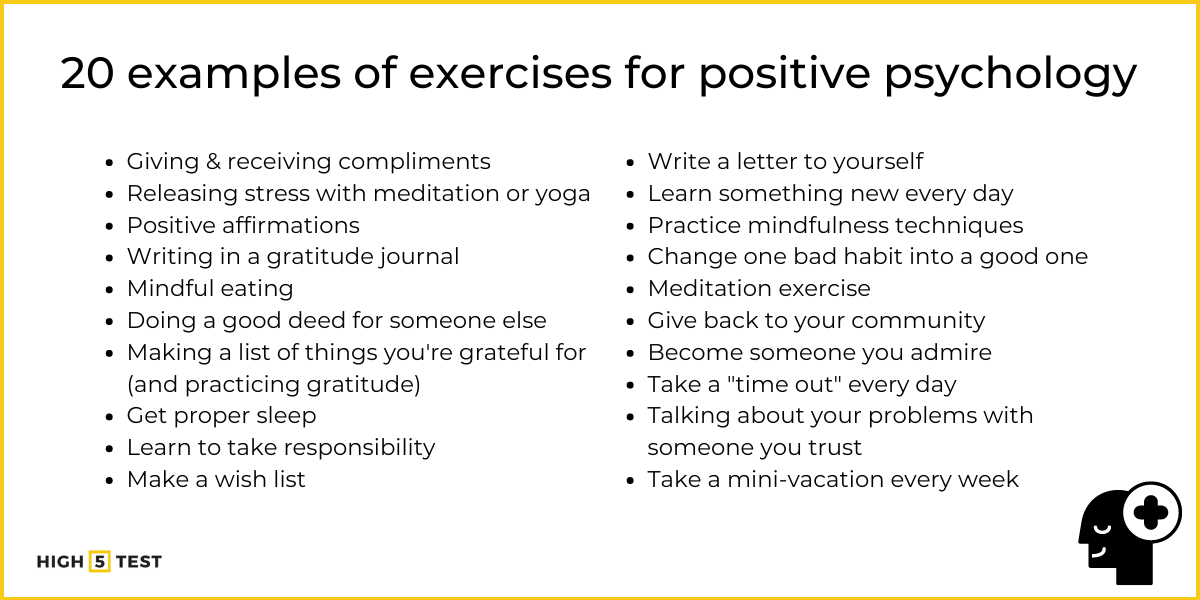When it comes to the field of positive psychology, it is relatively new, which leaves room for improvement in exercises and techniques. However, we can say that despite being a relatively new field of study, it has already made great strides in understanding what contributes to people’s happiness. This branch of psychology does not just focus on mental health and illness; instead, it views these two concepts as interrelated. One way to increase your happiness, according to positive psychologists, is by practicing certain exercises or engaging in specific activities daily. According to Baker (2003), self-care activities can also improve self-awareness, self-regulation, coping, and the balance between self and others. There are many ways you can use positive psychology techniques to boost your level of happiness today.
While techniques like meditation and journaling can boost happiness, identifying and strategically applying your unique strengths is a powerful catalyst for positive change and one of the most widely researched positive psychology exercises in the field. The HIGH5 strengths assessment reveals your top strengths so you can purposefully leverage them to increase happiness, fulfillment, and overall well-being. In this article, we’ll explore 20 practices, alongside the HIGH5 approach, to help you maximize your individual potential for flourishing.
What is a positive psychology exercise?
Positive psychology exercises are a form of therapy designed to improve your mental health in simple ways. When we say ‘positive’ we aren’t just referring to the things you like and enjoy, but we also mean the positive emotions and actions you can take. The idea of positive psychology is that it focuses on what makes people happy, which is why many are interested in its development. Happiness plays a major role in our lives when it comes to flourishing; without happiness, we simply can’t flourish.
Positive psychology interventions help us develop the characteristics needed for happiness, without relying solely on medication or therapy sessions with experts. When using positive psychology techniques and exercises, you’re improving your mental state and making progress toward greater psychological well-being over time. Positive psychology exercises can serve as a supplement for therapy and medication, providing mental health professionals with additional options when discussing treatment plans with doctors or specialists.

Moreover, there are plenty of positive psychology exercises and techniques to try out. There is no need to stick with the same ones repeatedly. You can use these positive psychology techniques for a long time without getting bored or feeling like you’ve done them too many times. Even if you do repeat some exercises, they can still have the same positive effects on your mental health each time you practice them. The value of these exercises lies in the fact that the more you practice, the better your mental health will be. This is one of the reasons why positive psychologists recommend committing to these exercises over time. Unfortunately, many people only practice one or two exercises before giving up. However, the more you engage with these positive psychology exercises and techniques, the greater the benefits for your mental health.
What techniques are used in positive psychology?
The techniques, activities, and exercises implemented in positive psychology are intended to help individuals feel happier and more fulfilled. Some of the techniques include meditation, journaling, self-help books, or attending meetings with others who share similar goals. Let’s dive a bit deeper into each of these techniques and activities.
Meditation and mindfulness
Meditation is a very popular technique used in positive psychology, but this concept can be confusing for those who are brand new to it. The exercise itself is simple – the person meditates to achieve a calm and focused state of mind. This can be done through yoga, sitting cross-legged on the floor, or lying down in bed with your eyes closed. The goal behind meditation is to clear your mind of all old thoughts that may be holding you back from being happy.
You typically start by focusing on one thing – whether it’s an object or a visualization in front of you – while blocking out any outside distractions that might pull you away from achieving a sense of inner peace. Understanding that you have the power to control your thoughts is a great way to start developing a sense of mindfulness and achieve happiness just by focusing on what’s in front of you. This will give you major life satisfaction if done consistently over time.
Journaling
Journaling is a simple technique that many people use as an outlet for their emotions, whether positive or negative. A positive psychologist would recommend picking up a notebook and writing down anything that comes to mind – whether it’s something funny or something challenging that happened throughout the day. There are no rules with journaling because it allows you to explore your creativity while still getting your feelings out in the open. Writing things down will help you feel like there’s someone listening which can be quite liberating in many ways.
Self-help books
It can be very helpful to read a book written by someone who has overcome difficulties similar to your own and lived to tell the tale, reassuring you it’s possible. This is one of the most popular techniques used in positive psychology for both children and adults because reading books can help you feel inspired, motivated, or even empowered. Knowing that you’re not alone is an important part of this technique because we are all human and have our bad days too.
Design a beautiful day
Make it your goal to create a beautiful day for yourself – whether that means having an early cup of coffee, reading the newspaper, or watching your favorite TV show. The key here is that you want a relaxing, enjoyable morning that will set a positive tone for the rest of the day.
Find your voice
Trying something new can be scary and intimidating, but it’s highly beneficial to your mental health as it helps you grow as an individual. There are many different ways to explore new things, such as relocating if you’re unhappy where you live or finding your passion in life by taking classes at a community college. This technique isn’t just meant for those who feel their daily life is lacking creativity, but it can also be used to help people who are experiencing negative emotions as well. For example, if you feel sad one day and try your best to cheer yourself up but find that nothing works, why not consider trying something new?
What is the P.E.R.M.A. model in positive psychology?
The P.E.R.M.A. model stands for Positive emotions, Engagement, Relationships, Meaning, and Accomplishment. These are the five positive components that contribute to overall subjective well-being. The model suggests that you should prioritize your daily life around these five activities to lead a happier and healthier lifestyle. There’s no wrong way to approach this, as everyone’s priorities will be different from one another.
P – Positive emotion
Positive emotions are vital for your psychological health because they help you feel good about yourself and your life overall. Having positive experiences such as laughing and smiling releases endorphins which can make you happier and more at ease emotionally. Positive emotions also lead to better performance in several areas of life, including relationships, work, and school.
E – Engagement
Engagement is the second part of the P.E.R.M.A. model, referring to the amount of time you spend on activities that add value to your own life. Outside of family, friends, and loved ones, many people spend a significant part of their time doing things that aren’t meaningful or rewarding in any way. One important thing to keep in mind is that it’s not just about doing fun things, but it’s also about spending time on activities that will help you develop skills and grow as a person.
R – Positive relationships
Relationships are the bonds we have with others, and they can affect our mental health more than we think. Strong emotional connections can lift us when we’re feeling down and help us through difficult times. They can be challenging to nurture, which is why many of us struggle to maintain connections throughout our lives. This means that sometimes, it’s essential to make a conscious decision to invest in the positive relationships that matter most to you.
M – Meaning
Meaning refers to what brings value and significance to your life. We all need something or someone to look up to, something that will motivate us and help us build a better future for ourselves. Understanding who or what provides that special meaning to your life is an important exercise to undertake.
A – Accomplishment
Accomplishment is the final part of the P.E.R.M.A. model, involving the process of setting goals and achieving what you want in life as long as it contributes to your overall well-being. For example, if you have some extra time on your hands, why not use it to volunteer? When we accomplish our personal goals, we feel empowered and proud of ourselves because we know that hard work pays off in the long run.
20 exercises for positive psychology
We will discuss in-depth every practice. But first, let’s cover a list of 20 exercises and practices:
- Giving & receiving compliments
- Releasing stress with meditation or yoga
- Positive affirmations
- Writing in a gratitude journal
- Mindful eating
- Doing a good deed for someone else
- Making a list of things you’re grateful for (and practicing gratitude)
- Get proper sleep
- Learn to take responsibility
- Make a wish list
- Write a letter to yourself
- Learn something new every day
- Practice mindfulness techniques
- Change one bad habit into a good one
- Meditation exercise
- Give back to your community
- Become someone you admire
- Take a “time out” every day
- Talking about your problems with someone you trust
- Take a mini-vacation every week

1. Giving & receiving compliments – Gratitude practice category
This means that you should give out compliments freely. Sometimes, it’s hard for us to accept compliments, which is why we don’t do it too often. When someone tells us we did a good job, we often deny it and focus on our shortcomings instead of recognizing our strengths. This is not productive. The key to accepting compliments gracefully and reciprocating them is practice. The more you do it, the easier it is to just smile and say ‘thank you. It won’t feel awkward anymore. You’ll find yourself offering genuine compliments to others without even thinking about it.
It would be nice to add a daily gratitude exercise as an example such as: “Grateful for a good conversation. I’m grateful for my friend Sarah who listened to me today. It felt great to share my thoughts and truly feel understood.”
2. Releasing stress with meditation or yoga – Body work
Stress is one of the biggest enemies of our mental health. When we feel stressed, it’s hard to think straight and our emotions are greatly affected. Stress also impacts our overall physiology. As such, practicing a type of meditation or yoga is an excellent way to manage stress. There are even some short forms of meditation that you can do in just five minutes every day.
One particularly effective method is Non-Sleep Deep Rest (NSDR), which offers a variety of benefits. NSDR helps reduce stress and anxiety, supports cognitive function and brain health, enhances sleep quality and recovery, and promotes overall well-being [1]. This practice, even in short daily sessions, can make a profound difference in how we manage the demands of modern life.
3. Positive affirmations – Confidence boost
Positive affirmations are another significant part of positive psychology. They work by programming your mind to express thoughts that enhance your self-esteem, which ultimately boosts your mental health. After all, if you don’t love and accept yourself fully, how can you expect anyone else to? When it comes to positive affirmations, everyone is different. Each person has unique insecurities and worries that they can address with these exercises.
It’s very important to start with easy affirmations and, as you gain confidence t, gradually move on to harder ones. As long as you keep practicing them, your confidence will grow stronger over time. Just like meditation and yoga, there are many short versions of this exercise that only take a few minutes every day.
It would be nice to include an example of a positive affirmation, such as:
- Self-Worth: “I am worthy of love and respect.”
- Confidence: “I believe in my abilities and trust my intuition.”
4. Writing in a gratitude journal – Gratitude
This might seem like a boring activity, but writing about positive experiences in your own words can benefit your mental health. Sometimes, we struggle to find the right words to express our feelings, and some of us even experience writer’s block when trying to write. It’s not always easy, and there are no shortcuts. But if you keep at it, you will gradually improve over time.
5. Mindful eating – Body category
When we eat mindlessly, food becomes a series of taste sensations without any deeper connection. In contrast, mindful eating involves taking the time to savor each bite and paying attention to the food in your mouth and how it feels. Sounds strange, right? But try it out and you might be surprised by the results.
6. Doing a good deed for someone else – Gratitude
Good deeds not only make those who are receiving them feel better but also serve as positive psychological exercises that can improve our mental health. It’s been proven that when we do something nice for someone else or even just hear about good deeds being done, our happiness levels increase. For example, a recent study [2] found that both kindness and gratitude interventions significantly improved the well-being of Chinese prisoners, with the kindness intervention showing a stronger effect, likely influenced by cultural factors. There’s no need to constantly focus on charity, but doing one good thing each day can have a greater effect on your mental health than you think.
7. Make a list of things you’re grateful for – Gratitude
Everyone knows the benefits of practicing gratitude, making it one of the most commonly used positive psychology exercises out there. After all, it’s not that difficult to think of things you’re grateful for– when push comes to shove, just consider your amazing family or good health. If you want to enhance your practice, keep a journal where you write down three new things you are grateful for each week. Gaining clarity on your innate strengths through the HIGH5 assessment can further enhance this practice. When you understand your top strengths, you develop a deeper sense of self-appreciation and gratitude for the unique positive traits that make you thrive. This self-awareness allows you to consciously apply your strengths while feeling grateful for them.
8. Get proper sleep – Body work category
It’s no secret that not getting enough sleep can affect our mental health status. One of the main reasons for this is that sleep deprivation makes us more irritable and prone to emotional outbursts. So, it’s important to make sure you get at least six hours of quality sleep every night, but if your schedule permits, eight hours is even better. Would be nice to add a short point on how to get better sleep. For example, “You could improve your sleep quality by establishing a consistent bedtime routine and creating an environment conducive to rest.”
9. Learn to take responsibility – Confidence
Taking responsibility for our actions and mistakes in life is crucial for both mental health and personal growth. We need to learn what works for us and what doesn’t by observing the consequences of our actions. If something goes wrong, the best thing we can do is to try to figure out exactly what went wrong and why. This exercise doesn’t always have to be difficult, but it can be if you decide to make it so. Just remember the golden rule of taking responsibility: you will only get out what you put in.
10. Make a wish list – Future plans
Making a wish list is one of those things that we often think about but never actually do. The idea is simple enough though: create a list of things you want or need and then try to get them, if possible. It might seem easy, but when was the last time you sat down and wrote out exactly what you wanted? Everyone has something they can think of right away, and some people can even narrow it down into three short sentences.
11. Write a letter to yourself – Gratitude, Self-Love
We all have regrets in life. Some of us don’t let these regrets get the best of us and just try to make the most of them because there’s no other option. Others tend to avoid accepting that they made mistakes or regret past actions. A helpful way to address this problem is by writing yourself a letter where you describe how you feel about what happened and why you wish it had ended differently, than reading it. It may not be easy at first, but for your mental health, it’s better than letting those feelings fester. When you do this consistently, it becomes like a series of self-administered psychological interventions. .
12. Learn something new every day – Confidence
Learning new things has many positive effects on our lives. This exercise doesn’t have to be difficult either, it can start small and just involve learning a new word every day or something you never thought about before. Similarly, stepping outside of habitual patterns, even in small ways, fosters flexible thinking, keeps the brain engaged, and enhances well-being, making both approaches valuable for personal growth and mental health [3].
13. Practice mindfulness techniques – Mindfulness
Mindfulness has been proven as an effective psychological technique that encourages self-awareness. We often think we know ourselves well, but that’s not always true. Learning about yourself is a great way to boost happiness, whether through practicing activities like yoga or meditating on what makes you the person that you are today. In line with this, the HIGH5 strengths assessment provides science-backed insights into your most powerful natural abilities, allowing you to mindfully observe, appreciate, and apply them for personal growth. With this clear understanding, you can practice mindfulness while consciously leveraging your strengths in all areas of life.
14. Change one bad habit into a good one – Habits
Bad habits are actions we do because they feel good or easy, but in the long run, they can lead to negative consequences. An example might be biting your fingernails; this could eventually lead to needing a manicure or going to bed late at night and being tired at work the following day. This exercise involves changing one bad habit into something positive and beneficial for you (an example would be replacing smoking with baking). You don’t have to eliminate the bad habit, just substitute it with something that provides more health benefits.
15. Meditation exercise – Meditation / Yoga
Learning how to meditate may seem like a difficult task but it’s just a matter of sitting in stillness and learning to appreciate breathing. Meditation doesn’t have to be practiced for extended periods either. Sometimes you can achieve great mental benefits from just taking ten minutes out of your day to sit quietly with yourself. The best thing about meditation is that it is something you can practice for the rest of your life since many different techniques exist (to name a few: Vipassana, Dzogchen, and Yoga Nidra).
16. Give back to your community – Gratitude
Giving back to the community is valuable because we get as much from the action as those who receive our services or goods. Use this opportunity to get creative and come up with ways to benefit others, whether it’s donating your time regularly or volunteering at an animal shelter. Also, make sure to listen to their needs.
17. Become someone you admire – Confidence
Many people spend so much time thinking that they’ll never be as great as their favorite celebrity/role model, but why not? Who says we can’t become someone better than our idols simply by practicing the qualities they possess? We can take what we admire about them and implement it into our own lives. While admiring role models is natural, true fulfillment comes from striving to become the best version of your authentic self. The HIGH5 strengths assessment reveals your unique positive qualities and talents. By mindfully developing and applying these innate strengths, you can shape an extraordinary life aligned with your values and potential. Rather than emulating others, embrace and amplify the strengths that make you genuinely remarkable.
18. Take a “time out” every day – Self-love
When you’re feeling overwhelmed with emotions or having a bad day, try to take time for yourself and recharge. A simple exercise is to go to a quiet corner of the house where there are no distractions and do absolutely nothing but appreciate the relaxing silence. If this feels too difficult, try listening to music or call a friend who will listen to whatever is on your mind without passing judgment.
19. Talking about your problems with someone you trust – Relationship building
It’s not always easy to open up about your problems, especially if it concerns feelings that might make you look weak in someone’s eyes (some people have built emotional walls due to past abuse and don’t want to feel vulnerable). However, talking about your problems with someone you trust is important because they can offer advice based on their own positive and negative experiences, and help you find a solution to your problem. If they truly care, they’ll do everything in their power to support you.
20. Take a mini-vacation every week – Relaxing
To live a meaningful life, we all need time off from work and daily routines, so why not take weekly mini-vacations? This could mean getting away for a weekend or even just an hour alone during the week. The goal is to relax and clear your mind by doing something simple, like reading a good book, going for a walk, or cooking.
Pro Tip From HIGH5
As you plan your weekly mini-vacation, consider how you can rejuvenate by engaging in activities that allow you to apply your unique strengths. For example, if creativity is a top strength, take a look into the actionable insights provided by the HIGH5 platform for your strength and schedule time for an artistic hobby you’re passionate about.
Bonus: unlock your potential with strengths
While the positive psychology practices covered so far can boost happiness, one of the most powerful paths to sustained fulfillment is discovering and intentionally applying your unique strengths. The HIGH5 strengths assessment provides a scientifically validated way to uncover your greatest natural talents and abilities. By taking the HIGH5 test, you gain invaluable insights into what makes you thrive as an individual. Understanding your top strengths allows you to amplify them strategically across all areas of life for maximum efficacy and authenticity. For example, if creativity emerges as one of your profound strengths, you can purposefully create more opportunities to innovate and express yourself through artistic outlets.
Beyond self-discovery, the HIGH5 approach yields insights for building high-performing teams and organizational cultures. When a group’s collective strengths are identified and optimized, a synergistic effect takes hold, allowing each member to thrive while accomplishing shared goals more effectively. If you’re ready to unlock your full potential through the transformative power of a strengths-based approach, take the first step by taking the strengths test now.
Positive psychology exercises FAQ
What are positive psychology exercises for groups?
Group exercises are one of the most effective ways to increase cohesion and support. These exercises can be used in a variety of settings, ranging from schools to corporate offices. Positive psychology group exercises include:
- Creative writing
- Mental health walking programs
- Relaxation techniques
- Meditation
- Problem-solving
- Group challenges
- Project-based activities
Do positive psychology exercises work?
Group exercises can be very powerful when conducted properly. Many of them are designed to build a sense of teamwork and camaraderie, especially among people who don’t know each other well yet. The exercises should be designed to positively impact one or more aspects of your life, such as social relationships and social skills. They are also effective at providing activities that you can engage in regularly to improve yourself and create more positive events in your life. This is because many of them are simple yet effective, allowing you to incorporate them into your daily routine with ease.
What is the ‘three good things’ positive psychology exercise?
The “Three Good Things” exercise involves writing down three positive experiences or things that went well each day. This practice helps shift focus from the negative to the positive aspects of life, fostering gratitude and improving mental well-being by reinforcing positive emotions.
Conclusion
According to positive psychology exercises, the goal of life is to make a difference. Every one of us has something unique that can be developed into something great with enough hard work and dedication. By engaging in these positive psychology exercises, you’ll be able to learn how to spot what makes you happy or what things simply make you smile. You’ll be able to reframe negative events and turn them into positive ones. Additionally, these positive psychology exercises can help you discover what truly fulfills you, supporting your personal growth in all aspects of life.
References:
- Neuhaus, M. (2024, August 16). Non-sleep Deep rest (NSDR): Exploring a world beyond sleep. PositivePsychology.com. https://positivepsychology.com/non-sleep-deep-rest-nsdr/
- Yang, Y., Zhao, H., Aidi, M., & Kou, Y. (2018). Three good deeds and three blessings: The kindness and gratitude interventions with Chinese prisoners. Criminal Behaviour and Mental Health, 28(5), 433–441. https://doi.org/10.1002/cbm.2085
- Hall, K. (2024, March 18). Doing something new is good for you. Psychology Today. https://www.psychologytoday.com/us/blog/pieces-of-mind/202201/doing-something-new-is-good-for-you








